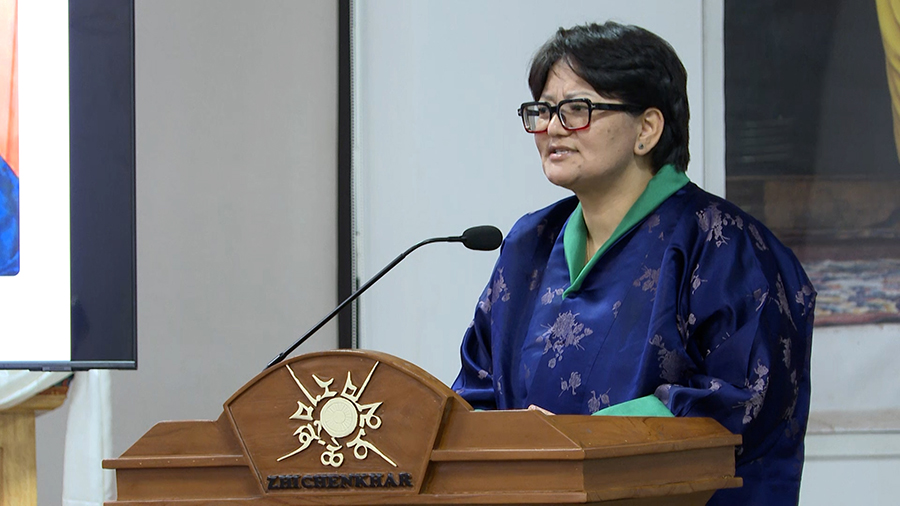 Mental health challenges are rising worldwide, and Bhutan is no exception. Today, the nation takes a step forward with the launch of its first-ever National Mental Health Strategy 1.0 at the Third Annual PEMA Symposium. It marks a bold move to strengthen and transform the country’s mental healthcare system.
Mental health challenges are rising worldwide, and Bhutan is no exception. Today, the nation takes a step forward with the launch of its first-ever National Mental Health Strategy 1.0 at the Third Annual PEMA Symposium. It marks a bold move to strengthen and transform the country’s mental healthcare system.
The National Mental Health Strategy 1.0 aims to build a society that values and supports mental well-being through a strong, integrated mental health care system.
“There are four components to the national strategy. The first focuses on governance structure and leadership. The second addresses closing the gap in providing mental health services, treatment, and rehabilitation. The third emphasises reintegrating individuals into society after rehabilitation. The fourth involves generating evidence to support greater investment in mental health,” said Dasho Dechen Wangmo, Head, The PEMA Secretariat.
According to the strategy, there is are growing burden of mental health conditions in Bhutan, with anxiety and depression accounting for about 55% of the total reported mental health-related conditions in 2023.
Mental health conditions related to alcohol and substance misuse are also increasing. An action plan will be developed to support the strategy’s implementation.
 “We would ultimately like to have a costed action plan. So, we know exactly as a country, as a nation, what is an investment that is required to address this mental health service gap. And to provide mental health services for everyone, everywhere in the country,” added Dasho Dechen Wangmo, Head, The PEMA Secretariat.
“We would ultimately like to have a costed action plan. So, we know exactly as a country, as a nation, what is an investment that is required to address this mental health service gap. And to provide mental health services for everyone, everywhere in the country,” added Dasho Dechen Wangmo, Head, The PEMA Secretariat.
Currently, over 150 school counsellors work in secondary schools to provide preventive support and counselling. In health service centres, there are eight national psychiatrists, 26 clinical counsellors, eight protection officers, and 11 mental health outreach workers, among others.
However, specialised mental health services are currently available only in the capital at the National Referral Hospital, provided by a multi-disciplinary team. According to the strategy, the country still lacks enough sub-specialised mental health professionals.
Health experts at the symposium highlighted that over one billion people worldwide live with a mental health condition, with anxiety and depression being the most common. And more than a quarter of that is in South-East Asia, where Bhutan is located.
Kinzang Lhadon
Edited by Tandin Phuntsho









